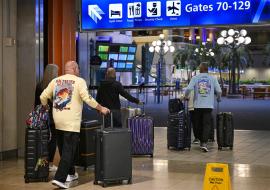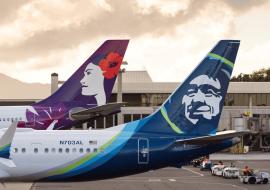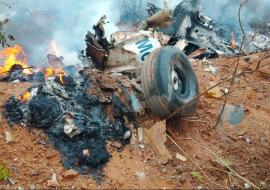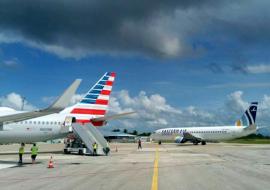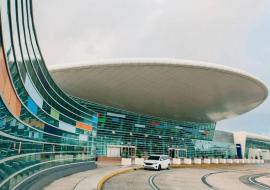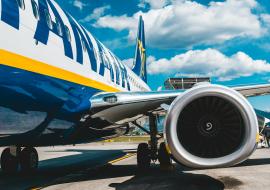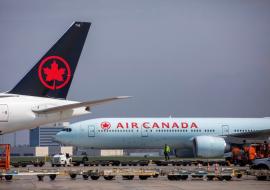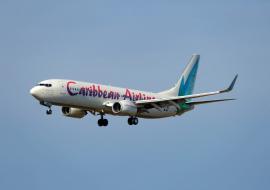Virgin America Reports $49 Million First Quarter Operating Loss
Virgin America, the closely watched upstart U.S. airline that is partly owned by Richard Branson’s Virgin Atlantic Airways, reported a first quarter operating loss of $49 million on revenues of $267 million. The airline said top line growth continued to outpace its capacity growth.
Year-over-year, total revenue grew by 33 percent for the first quarter on a 29 percent increase in Available Seat Miles (ASMs) at a time when the rest of the industry reported flat capacity. The airline ended the quarter with $111 million in unrestricted cash.
Virgin America said it accomplished these results despite fuel costs that were 47 percent higher year-over-year, the financial pressure of the airline's industry-leading capacity growth and a revenue shortfall associated with the airline’s transition to a new reservations system.
Virgin America reported 2.2 percent year-over-year RASM growth, versus the double digit RASM percentage increases reported in 2010 and 2011. The airline said these results were driven by significant capacity growth as well as systems issues associated with the transition to a new reservations platform.
The growing airline said its rate of entry into new markets created margin pressure, which offset revenue gains in more mature markets. While capacity was up 29 percent year-over-year, total capacity increases were up 59 percent over the past two years. This rapid growth has established Virgin America's core network and provided an important base for the carrier's future success, the airline said in its financial release.
This planned phase of accelerated growth will wind down in mid-2012, until the airline's next major fleet order begins delivery later in 2013. At the same time, website issues and revenue management challenges associated with the airline’s transition to a new Sabre reservations system reduced first quarter revenue by $10 to 15 million.
Virgin America said its results were also adversely impacted by high fuel prices. Had fuel prices remained flat year-over-year, the airline's fuel costs would have been $15 million lower for the quarter. In late 2011, Virgin America resumed a fuel-hedging program to help manage the impact of fuel price volatility.
Approximately 70 percent of the airline's fuel consumption in the first quarter of 2012 was hedged at prices slightly below market levels, resulting in a fuel expense for the quarter that was approximately $2 million below market prices. The airline has hedged approximately 33 percent of its expected fuel consumption for the remainder of 2012. Since April 2012, fuel prices have dropped significantly. Under Virgin America's hedging program, the airline will not realize the full benefit of falling prices until the second half of 2012.
Virgin America continued to drive significant growth in the quarter. It expanded its fleet from 38 aircraft in March 2011 to 51 aircraft by the end of the first quarter 2012. Today, the carrier operates 52 aircraft.
The airline also took delivery of five Airbus A320 aircraft in the first quarter. It has acquired 23 aircraft since the first quarter of 2010, an 82 percent increase. This phase of accelerated growth comes to an end in mid-2012, with deliveries under the carrier's next major fleet order not starting until later in 2013.
Over the next year, Virgin America said it expects improved financial performance from its growing network as newer markets mature. In the 12 months prior to the first quarter of 2012, the airline launched new service to Cancun, Chicago, Puerto Vallarta and Palm Springs. In addition, it launched new service to Dallas-Fort Worth and Los Cabos in December of 2010.
http://www.travelpulse.com/virgin-america-reports-49-million-first-quarter-operating-loss.html







